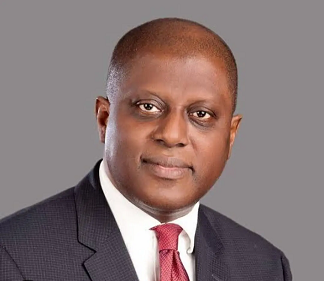It is expected that the Monetary Policy Committee(MPC) of the Central Bank of Nigeria(CBN) will hold its last meeting for 2023 before the end of this year, having missed the previous one that was scheduled to hold in September.
The committee had shelved the last meeting after a substantial number of its members, comprising of key persons such as the CBN governor and deputy governors had been replaced just weeks before. However, economic conditions, particularly, inflations did not suspend its rising trend.
Inflation, which measures the rate at which prices of goods and services rise in the country, continued a steady climb rising to 27.33 per cent in October, according to latest data released by the National Bureau of Statistics(NBS).
The rate at which inflation rose in October as against 26.72 per cent recorded in September was slower when compared to 25.8 per cent recorded in August or 24.08 recorded in July this year. There has been a continued call on policy makers both fiscal and monetary to put in place measures that will stem the rising tide of inflation in the country.
The CBN, under the previous governor, Godwin Emefiele, had maintained that it will tow the path of a tight monetary policy as long as inflation continues to rise. However, the new CBN governor, Dr Yemi Cardoso, has made it clear that the apex bank under his leadership will deviate from the developmental path towed in times past.
According to economist and chief financial officer at Tranzfar Group UK, Dr. Olusiji Sanya, Nigeria’s monetary policy is at a crossroads, and change is imperative. Sanya, while canvassing that the CBN adopt microprudential monetary policy noted that, ‘by embracing innovative approaches, the central bank can chart a path toward greater stability and prosperity for the nation.’
He noted that Nigeria, like most modern economies, “strives for price stability and foreign exchange management as part of the cornerstones of its monetary policy. However, the persistently high inflation rates and ongoing economic challenges call for a change in the way monetary policy is administered in Nigeria.
“In this context, it is crucial to consider several innovative approaches that have been successful in other economies and could be beneficial for Nigeria. Cardoso has already signalled a departure from his predecessor’s monetary policy approach to the delight of Nigerians and investors alike, pivoting from the unorthodox policies that roiled the economy under Godwin Emefiele.
“Given Nigeria’s high inflation rate and the limitations of conventional monetary policy tools, the central bank may need to deploy microprudential directives or policies in specific sectors of the economy instead of raising interest rates, which could negatively impact struggling sectors. This approach acts as a precision instrument, but it requires accurate economic data to be effective.
“On the path toward achieving the target inflation rate, the central bank should provide short to medium-term guidance on its views, planned actions, or decision logic. Ideally, no monetary policy action or announcement should come as a surprise to Nigerian economic stakeholders and market participants.”
He stated further that, in addition to employing microprudential interventions to protect citizens’ welfare, the apex bank should ensure that its monetary policy considers the human aspect while repositioning the Nigerian economy for rapid growth and industrialisation. Collaboration with the fiscal authorities on sustainable measures to address core inflation items, such as food, energy, transport, and telecoms/internet, is essential.
To him, “The central bank should recognise that its monetary policy is intertwined with its foreign exchange and remittance policy. Foreign exchange and remittance policies should be viewed as integral components of a broader toolkit for economic repositioning, and they must be executed and communicated in a way that aligns with overall monetary objectives.
“The Central Bank of Nigeria, under the leadership of Cardoso, has a crucial role to play in restoring competence, integrity and confidence to its monetary policy. It must clearly communicate its objectives, demonstrate commitment to said objectives, and provide economic agents with a transparent framework for decision-making. By thoroughly understanding the intricacies of the Nigerian economy and its shock transmission mechanisms, the central bank can better tailor its monetary policy tools to achieve desirable results.”





